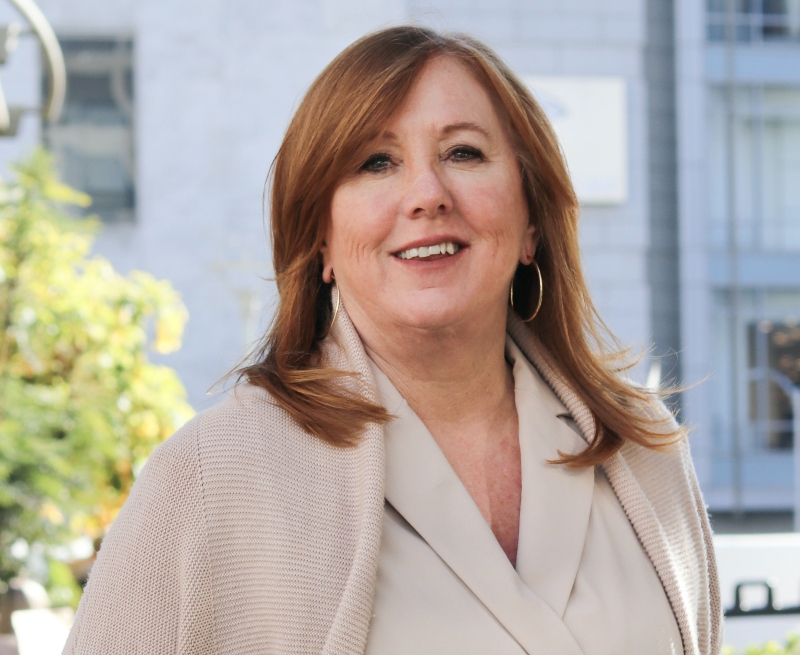Aarti Shah 28 May 2020 // 4:57PM GMT

With May being Mental Health Month, we are doing a series of Q&As with industry professionals who are taking action around this issue for the industry. As we know, the PR is facing a mental health crisis. Before the Covid-19 pandemic, the latest figures from the Public Relations and Communications Association and research company Opinium showed that a shocking 89% of practitioners have struggled with mental wellbeing.
In this Q&A, we speak to Barbara Bates, global CEO at Hotwire. Under her leadership, the agency has created a "bring your whole self" to work movement that includes an ebook where employees across Hotwire's global offices share their personal challenges. Bates also shares her own story of exhaustion and anxiety — and how she deals with the seemingly inevitable and relentless industry stressors.
Q&As in this series: Leslie Campisi | Jo-Ann Robertson | Barbara Bates | Leslie Garcia
Aarti Shah: Whenever those ‘most stressful jobs in America’ lists come out, working in PR in nearly always there. What are some unexpected ways that PR can be stressful?
Barbara Bates: Anytime you’re in a customer service business it’s stressful. Two things that make PR specifically stressful is the high stakes of making mistakes and the always on pace of the work. The work we do is very visible and this puts added pressure on us.
Aas: I’ve seen PR agencies take mental health more seriously than ever. Of course, the Covid-19 pandemic has created new stressors, has it also helped relieve some others?
BB: I think for some it’s relieved the stresses associated with things like commuting long distances through heavy traffic, etc. by simplifying their day. But I think it’s added many more for some demographics—parents for example. Trying to work a full-time job while homeschooling your children has been really stressful. The other group that is really having a hard time is young staff that have multiple roommates in small apartments all trying to work at the same time.
AaS: What should the PR industry change to better address mental health
BB: Recognizing the issue is the first step and I have been really pleased to see this as a topic that’s being discussed at industry events in the past couple of years. I think agencies in particular need to change the dynamic with clients to become true respected partners. There should be mutual expectations on things like response times, deadlines, shared responsibilities and this all needs to be done at the beginning of the relationship. Especially with more people working from home, agencies need to also provide healthy guidelines for how to avoid burnout when there’s less separation between work and home life.
AaS: Let’s talk about the tech sector. What is unique to this sector re: stress and mental health? There must be a significant difference between startups and established companies?
BB: There is nothing like the “always-on” nature and pace of the tech scene in Silicon Valley. And yes, start-up life can be even more consuming than working in or with larger companies. The pressure to make an impact fast in the start-up world is intense. However, the complications of maneuvering larger organizations can also be highly stressful because the financial impact of things going wrong both for the company and its agency partners can be huge.
AaS: What differences do you notice in how different genders, generations or other groups approach and handle mental health issues?
BB: This is an interesting one. My observations are obviously not scientific and more anecdotal. I would say men suffer in silence more than women. Younger generations are more in-tune and more vocal about their mental health than older staff. Like many issues within an organization, the openness of leadership to discuss things like this will dictate how safe employees feel to discuss their own issues.
AaS: At PRovoke19, a major theme was ‘bringing your authentic self to work.’ What does this look like? And what are the reasons/risks that hold people back?
BB: This was very similar to the theme of our own annual all company boot camp a couple of years ago. And was hugely appreciated and openly applauded by our staff. We’ve continued to espouse this attitude and not that long ago published an online booklet called #BringYourWholeSelf that included personal stories from around 20 people in our company. I think the way our company looked at this topic changed when senior people, including myself, were vulnerable enough to share our own stories. And I think that shows other staff that they don’t have to hold back about their own struggles.
AaS: Anything I didn’t ask about that you would like to add?
BB: I do think there is extra added stress for people from diverse backgrounds, people of color, LGBTQ, etc. It’s been well documented that our industry lacks diversity — an issue that continues to have a big impact on things like the war for talent. Coming into an industry or a company where you feel different and not well represented can add a whole other level of stress and pressure. I’m not sure any of us focus on this as much as we should in terms of mental health issues.
Q&As in this series: Leslie Campisi | Jo-Ann Robertson | Barbara Bates


































.jpg)

















